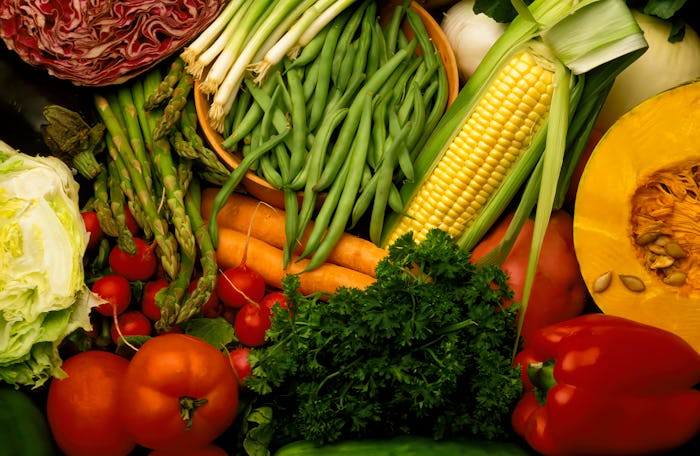Life

7 Foods To Help You Cope With Endometriosis
As a woman, you know firsthand how much getting your period can really suck. But if you're a woman who struggles with endometriosis, you know that it's much more than that. Living with endometriosis can be scary, painful, and life changing. Fortunately, there are effective treatments available. But did you know that there are foods to help you cope with endometriosis?
According to the Mayo Clinic, "endometriosis is an often painful disorder in which tissue that normally lines the inside of your uterus (the endometrium) grows outside your uterus." Though there are plenty of endometriosis treatments available, changing your diet is one of the simplest ways you can take treatment into your own hands. British nutritionist Dian Shepperson Mills pioneered a dietary program for endometriosis, and spoke to Everyday Health about the theory behind her studies. “The diet aims to reduce internal inflammation within the body, improve pain responses, and support estrogen excretion from the body," Shepperson Mills told Everyday Health. According to Shepperson Mills, 20,000 women have tried the diet and many reported improvement in pain levels and fertility.
If you're suffering from endometriosis, consider the following changes you can make in your diet to help you cope with endometriosis.
1Fish
According to Women's Fitness, the inflammation and cramping of endometriosis are caused primarily by an excess of a certain prostaglandin, a natural fatty acid. You can balance out your prostaglandin levels by eating more foods rich in omega-3. Mackerel, salmon, herring, and other oily fish are a great source of omega-3.
2Leafy Green Vegetables
Shepperson Mills also told Everyday Health that replacing lost iron is important when you have endometriosis. She went on to say that green, leafy vegetables are a great source for non-heme iron to help you with your symptoms.
3Broccoli
Broccoli is a wonder vegetable. Containing vitamins A, B6, C, and E, and minerals like copper, folate, manganese, zinc, calcium, and more, the vegetable helps detoxify the body from excess estrogen, which will help regulate your endometriosis, according to Lotus Power Health.
4Beans
According to Endometriosis Resolved, beans are a food you should add to your diet if you have endometrosis. Pinto beans, lima beans, red kidney beans, red lentils, black eyed peas, and fava beans are just a few types of beans that contain phytoestrogens, which can help you regulate additional estrogen entering your system.
5Oatmeal
Oatmeal is a great source of fiber to include in your diet. According to Peace With Endo, a site dedicated to living with endometriosis and finding ways to cope with it, fiber helps decrease circulating estrogen in your system that feeds endometriosis. Fiber also aids in digestion by improving bowel mobility.
6Fruit
Along with oats, the fiber found in fruit can also aid in digestion and soothe endometriosis symptoms, according to Women's Fitness. Adding more fruit to your diet is a simple and delicious way to combat your cramps and side effects. Apples, blueberries, blackberries, cranberries, goji berries, and acai berries are especially helpful.
7Fresh Vegetables
According to Livestrong, in a study published in the July 2004 issue of Human Reproduction, researchers studied the relationship between diet and pelvic endometriosis. The results suggest that increased intake of vegetables can not only lower your symptoms, but also help prevent endometriosis.
This article was originally published on